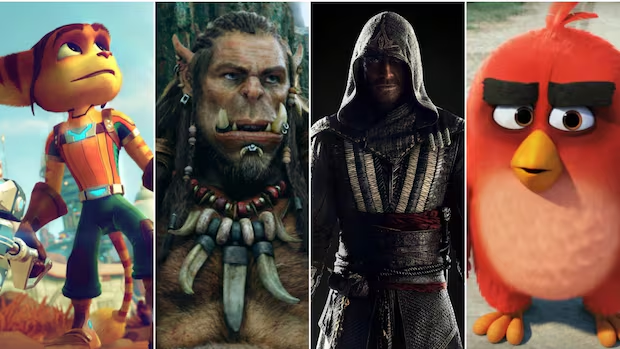When the Controller Becomes a Script: Are Video Games the New Cinema?

Film has often been described as the greatest form of entertainment in the world. The combination of visual and auditory elements creates a medium uniquely capable of telling phenomenal stories. Some of the most enduring works of fiction are films: Casablanca, 2001: A Space Odyssey, The Matrix, and Apocalypse Now. Each of these works redefined what cinema could achieve, not merely as entertainment but as cultural and philosophical landmarks. These were not just movies. They were art.
Yet art never stands still. As times change, so too do the forms through which we express imagination and meaning. While film granted creators the ability to show what once seemed impossible, it also remains bound by its limitations: budgets, physical framing, and logistical constraints. Even with the rise of CGI, film remains at its core a linear medium, planned, fixed, and projected the same way for every viewer. This is precisely where video games diverge.
Unlike film, video games are inherently interactive. Depending on the title, they can be strictly linear or wildly non-linear, narrative-driven or entirely sandbox. They invite the player not just to consume a story but to co-create it. That shift, from audience to participant, has altered the relationship between medium and consumer. It raises a cultural question worth taking seriously: why passively watch a film when a game allows us to shape our own narrative?
Take Red Dead Redemption 2 as an example. The game follows Arthur Morgan, an outlaw in the twilight of the Wild West, riding with his gang. Throughout the story, players choose between “low” and “high” honor actions. These decisions ripple across the world, shaping how characters respond, how shops price goods, and even how the narrative concludes. Two possible endings await, each tied to the moral code you build across dozens of hours. Crucially, these choices allow players to craft their own Arthur Morgan: a man of conscience or an irredeemable outlaw. And once finished, the game invites players to begin again, to retell the story with new decisions, to see how else the world bends under their will.
This capacity for variation leads to a provocative thought. If video games empower us to generate individualized versions of a story, why should we settle for one predetermined version in film? Why watch a Spider-Man movie with Tom Holland constrained by someone else’s script when I can make my Spider-Man wear the costume I choose, fight the battles I want, and inhabit the story I prefer? Games offer a form of authorship that cinema cannot replicate.
However, this freedom comes with trade-offs. The push toward “cinematic” games, lavishly realistic and tightly scripted, can paradoxically undermine the very strength of interactivity. Some titles lock players into narrowly defined choices to preserve the developer’s intended narrative, making the game feel more like an interactive movie than a world to be explored. Rising production costs only amplify this tension. Games today are so resource-intensive that they often bloat with filler content or slow openings, demanding dozens of hours before delivering payoff. In contrast, films, for all their linearity, often hook audiences immediately with familiar draws: star actors, a celebrated director, a recognizable composer. Games have their equivalents, but their appeal functions differently and often with less clarity.
Another factor is accessibility. A two-hour film requires only time and a ticket, while a modern video game often requires an expensive console, dozens of hours of commitment, and a willingness to learn its mechanics. This raises questions of who gets to fully experience the artistic promise of games, and whether the medium risks creating barriers that film, for all its costs, has largely overcome.
What emerges is not a simple question of replacement. Games do not render cinema obsolete. Instead, they represent evolution. Video games embody an artistic frontier that merges narrative and interactivity, immersion and authorship. They offer a counterpart to film, not a substitute, one that extends storytelling into spaces where players are not mere spectators but co-creators. Yet, in adopting cinema’s strengths such as narrative polish and aesthetic ambition, they risk inheriting its weaknesses as well.
The controller is becoming a script. Whether this leads to the next great leap in storytelling, or to a hybrid form that inherits the pitfalls of both media, remains an open question. What is certain is this: just as film once revolutionized art and entertainment, video games are now pressing against the boundaries of what it means to tell, and to live, a story.
